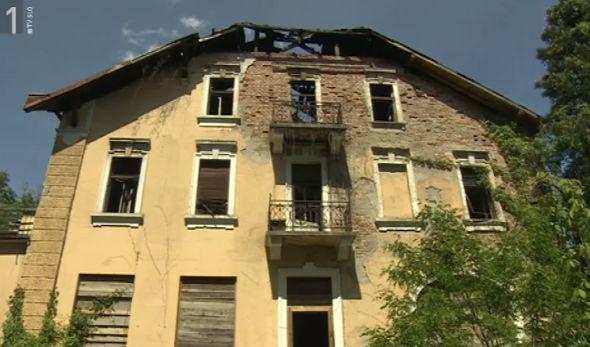
Visitors to Ljubljana’s Tivoli Park – at least those who venture further into the woods surrounding the park – may stumble upon the ruins of an old building. The structure’s sad appearance belies its history as a hotel that was once at the center of the capital’s social life.
The hotel, built in a style known as the Vienna Secession, was opened in 1909 by a wine merchant named Alojzij Zajec. Because of its beautiful vista over much of Ljubljana, it was christened the Bellevue, and it quickly became a popular destination for locals and foreign visitors alike. After it was taken over by the Šterk family in 1928, the Bellevue emerged as a favored destination for lunches. In the 1930s, it was the site of one of Ljubljana’s first jazz concerts.
The hotel even managed to survive World War II and remained with the Šterk family until it was seized and nationalized by the Communist authorities – relatively late – in 1953. Meanwhile, it remained a popular meeting place and began to attract a new generation of visitors. By the 1960s, it was again among one of the most fashionable spots in Ljubljana – one of the few places where fun-seeking young people could gather in still-sleepy Ljubljana -- and even its barkeepers gained a reputation for their skills. Partnered with a local culinary school, the Bellevue was also known for good food, and fresh trout was long one of its specialties.
By the 1980s, however, the hotel began to show signs of age and insufficient maintenance. After independence, it was closed down and changed hands several times. Several new owners – including a Jordanian fund – went in with grand ambitions, but inevitably ran out to funds and passed on the Bellevue to someone else.
Even though the building has been officially listed as a historic structure, its decay continues unabated. Parts of it were taken over by the homeless, and several fires destroyed the building’s roof and turned the Bellevue to ruin. Now seen only by coincidental passers-by, its decaying walls serve as a sad reminder of happier times – but also a clue to the glory that could be revived one day with the right owner and a vision for the future.

































































